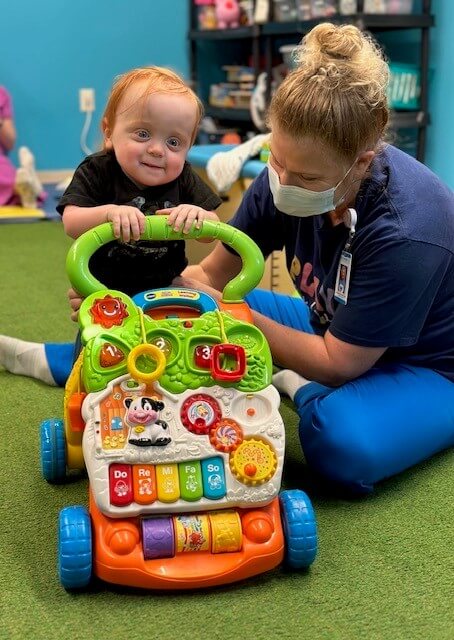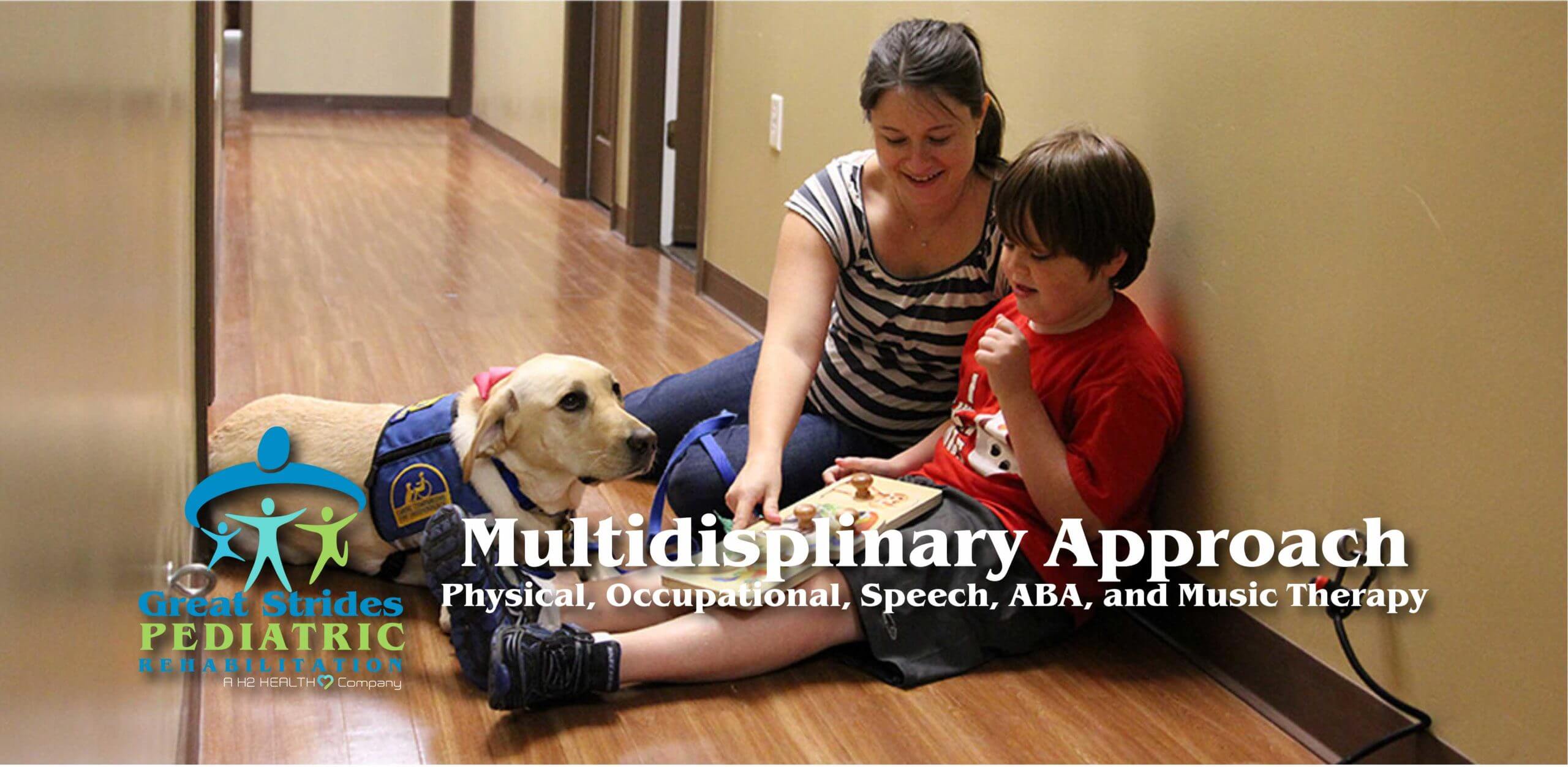
Services
As the region’s premier pediatric rehabilitation center of excellence and a Florida Empowerment Scholarship for Unique Abilities (FES-UA)-Approved Private School for children with special needs, Great Strides provides a complete array of therapy services. We specialize in helping children with developmental and physical disabilities, and our staff considers their job to be ‘a personal calling’. Great Strides therapists are dedicated to the Mission of improving the quality of life for children and their families. We provide effective, comprehensive treatment through a collaborative approach in multiple disciplines...

Our Locations

Jacksonville, Arlington
4600 Beach Blvd
Inside the Hope Haven Facility
Jacksonville, FL 32207

Jacksonville, Mandarin
12276 San Jose Blvd
Suite 508
Jacksonville, FL 32223
![Image[4] – Copy](https://www.h2health.com/wp-content/uploads/sites/399/2023/07/Image4-Copy.jpeg)
Middleburg
430 College Dr
Suite 107
Middleburg, FL 32068

Callahan
450061 State Road 200
Next to H2 Health
Callahan, FL 32011

New Smyrna Beach
140 Wallace Road
Inside H2 Health
New Smyrna Beach, FL 32168

St. Augustine
1764 Tree Blvd, Unit 2
Temporarily Treating at H2 Health
St. Augustine, FL 32084
Our Locations
- Great Strides Pediatric Rehab in Middleburg, FL430 College Dr Ste 107,
Middleburg, FL 32068, USA
Phone: (904) 886-3228
Fax: (904) 404-7743
More Info - Great Strides Pediatric Rehab in New Smyrna Beach, FL140 Wallace Road
New Smyrna Beach, Florida 32168, USA
Phone: (904) 886-3228
Fax: (904) 404-7743
More Info - Great Strides Pediatric Rehab in Southpoint- Jacksonville, FL6871 Belfort Oaks Pl suite 200, Jacksonville, FL 32216, USA
Phone: (904) 886-3228
Fax: (904) 404-7743
More Info - Great Strides Pediatric Rehab in St. Augustine, FL1764 Tree Blvd unit 2,
St. Augustine, FL 32084, USAPhone: (904) 886-3228
Fax: (904) 404-7743
More Info - Great Strides Pediatric Rehab in Mandarin- Jacksonville, FL12276 San Jose Blvd Suite 508
Jacksonville, FL 32223, USA
Phone: (904) 886-3228
Fax: (904) 404-7743
More Info - Great Strides Pediatric Rehab in Callahan, FL450061 State Rd 200
Callahan, FL 32011, USA
Phone: (904) 886-3228
Fax: (904) 404-7743
More Info

Jacksonville, Southpoint
Recently Moved from Arlington
6871 Belfort Oaks Pl, Suite 200
Jacksonville, FL 32216

Jacksonville, Mandarin
12276 San Jose Blvd
Suite 508
Jacksonville, FL 32223
![Image[4] – Copy](https://www.h2health.com/wp-content/uploads/sites/399/2023/07/Image4-Copy-300x300.jpeg)
Middleburg
430 College Dr
Suite 107
Middleburg, FL 32068

Callahan
450061 State Road 200
Next to H2 Health
Callahan, FL 32011

New Smyrna Beach
140 Wallace Road
Inside H2 Health
New Smyrna Beach, FL 32168

St. Augustine
1764 Tree Blvd, Unit 2
St. Augustine, FL 32084
Searching for exceptional pediatric care for your child's rehabilitation needs? Book an appointment with Great Strides Pediatric Rehabilitation today!
Get Started






























